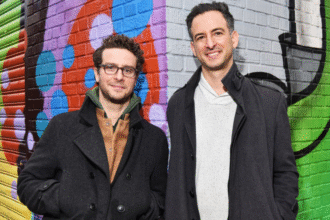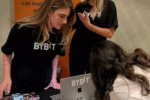With each new group of entrepreneurs, the same mistakes pop up again and again.
While many are eager to build their startups, they often make one critical mistake. Steve Blank, a serial founder and entrepreneurship professor at Stanford University, calls it “fatal.” This mistake can be a knockout blow before a project even takes off.
Blank, who has co-founded four startups and managed the development of eight tech companies, says, “I’ve seen this happen a million times.”
Enthusiasm Isn’t Enough: Do You Really Know Who Your Customer Is?
Steve Blank believes the biggest mistake entrepreneurs make is starting with an idea before understanding their market.
He explains, “The most important question isn’t: What am I going to build? It’s: Who are my customers? And what do they really want?”
Many founders fall into a common trap. They think that once they find an idea that seems great on paper, they can figure out how to market and sell it later. But without checking if there is real customer demand first, this approach often leads to failure.
Blank speaks from experience. In 2005, he sold his last company, Epiphany, a business software firm, for $329 million. However, he insists his success wasn’t always a sure thing. In fact, the lessons he learned from failure were much more valuable than those from success.
Lessons from a Big Failure: The Rocket Science Games Experience
One of the stories Blank shares is his painful experience with Rocket Science Games. He founded this company in the 1990s during a media frenzy. It attracted a huge $35 million in investment and landed on the cover of Wired magazine as one of Silicon Valley’s rising stars.
But the reality was quite different.
Despite the talented engineers and impressive marketing campaigns, Blank later realized he had overlooked something crucial:
“The customers didn’t like the games. Quite simply, they were bad.”
Sales never came, and the company shut down entirely by 1997. If Blank had spent more time understanding his target audience’s needs and desires, he might have spotted the issues earlier or possibly avoided founding the company altogether.
In his own words: “My biggest killer, my biggest failure, was ego. Don’t believe your own lies. It’s so easy to be convinced of your own passion and vision.”
Listen to your customers before you talk to them about your product.
Steve Blank is not alone in urging entrepreneurs to get out into the market and hear from customers as early as possible.
Alberto Perlman, co-founder and CEO of Zumba Fitness, says the biggest mistake founders make is “assuming they know better than their customers.”
Investor and Shark Tank panelist Robert Herjavec mentions in a LinkedIn post: “It’s natural to become attached to your product or service, but success depends on seeing its value through the customer’s eyes.”
The key takeaway is this: no matter how great an idea seems to its founder, the real decision belongs to the customer.
Blank consistently encourages his students to “get out of the office” and connect with potential customers, even before writing any code or designing a prototype. These early conversations provide vital information on product-market fit.
A lesson for the future: Don’t let ego mislead you.
In the end, Steve Blank offers important advice for every founder passionate about their project:
“Don’t let your enthusiasm blind you to the facts.”
Enthusiasm can feel like strong fuel at first, but it’s not enough on its own. Without listening to the market and the customers, even the best ideas can turn into failures, regardless of how talented the team is or how much funding they receive.
Blank puts it plainly:
“Don’t fall into the trap of ego. Listen to the market and understand your customers before you waste millions on an idea no one asked for.”









